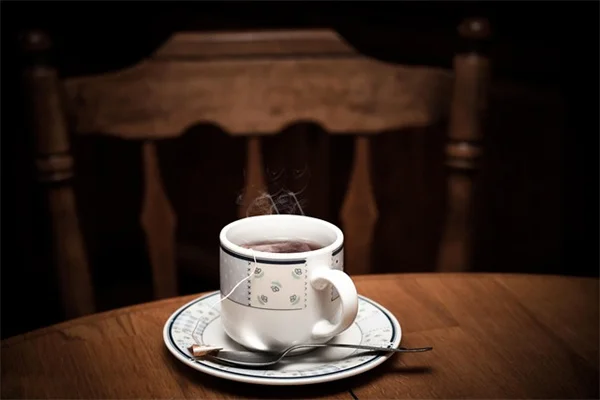CT Scans vs Genetic Testing: Which Predicts Heart Disease Risk Better?
Advertisement
CT scans or genetic testing - which is better for predicting heart disease risk? The answer is clear: CT scans win hands down for middle-aged adults according to groundbreaking new research. While traditional risk factors like age, cholesterol, and blood pressure give doctors a starting point, they often miss the full picture. That's where coronary artery calcium scoring comes in - it's like getting an X-ray of your actual heart health instead of just guessing based on family history or blood work.Here's why this matters to you: About 8-9% of people develop heart problems even when their conventional risk factors look normal. That's nearly 1 in 10 walking around with a ticking time bomb! The study followed over 3,200 adults for 17 years and found CT scans improved risk predictions dramatically, while genetic testing barely made a difference. Think of it this way - would you rather know what's actually happening in your arteries right now (CT scan) or just your genetic potential (testing)? Exactly!But don't write off genetics completely - they might help younger adults before plaque shows up. For most of us over 40 though, getting a coronary artery calcium score could be the wake-up call that saves your life. As cardiologist Dr. Green puts it: All persons over 40 with at least one risk factor should get this test. Your heart will thank you!
E.g. :Statins for Heart Health: Why Only 35% of Eligible Americans Use This Lifesaving Drug
- 1、Why CT Scans Beat Genetics in Predicting Heart Disease Risk
- 2、Making Sense of Your Heart Health Numbers
- 3、Practical Steps to Protect Your Heart
- 4、The Future of Heart Disease Prevention
- 5、The Hidden Benefits of Early Heart Screening
- 6、Debunking Common Heart Health Myths
- 7、Innovations Coming to Heart Health
- 8、Making Heart Health Social (Yes, Really!)
- 9、Heart Health Hacks for Busy People
- 10、FAQs
Why CT Scans Beat Genetics in Predicting Heart Disease Risk
The Limitations of Traditional Risk Factors
You know how your doctor always asks about your age, blood pressure, and whether you smoke? Those conventional risk factors give us a decent starting point, but they're like trying to predict the weather with just a thermometer - we need more tools!
Here's the problem: About 8-9% of people in studies develop heart disease even when their traditional risk factors look okay. That's like having a "check engine" light that never turns on until your car breaks down! This shows we need better ways to spot trouble before it happens.
CT Scans vs. Genetic Testing: The Showdown
Imagine two detectives trying to solve a case:
| Method | What It Checks | Effectiveness |
|---|---|---|
| CT Scan (Coronary Artery Calcium) | Actual plaque buildup in arteries | ★★★★★ |
| Genetic Testing (Polygenic Risk Score) | 6 million genetic markers | ★★★☆☆ |
The study followed 3,200 adults for up to 17 years, and guess what? The CT scan was the clear winner at predicting who'd develop heart problems. It's like the difference between reading someone's diary (genetics) versus checking their browser history (CT scan) - one shows actual behavior!
 Photos provided by pixabay
Photos provided by pixabay
When Should You Get a CT Scan?
Dr. Green puts it perfectly: "All persons over 40 with at least one risk factor should get a coronary artery calcium score." Think of it as your heart's "credit score" - the higher the number, the more work you need to do.
But here's a question you might be wondering: Why bother with genetic testing if CT scans work better? Great question! While CT scans rock for middle-aged folks, genetics might help younger adults before plaque shows up. It's like having a smoke detector (genetics) and a fire extinguisher (CT scan) - both useful at different times.
Making Sense of Your Heart Health Numbers
Understanding Your Risk Categories
The American College of Cardiology breaks it down simply:
- < 5% risk: You're cruising in the safe lane
- 5-7.5%: Time to check your mirrors
- > 7.5%: Red alert - statins likely recommended
Here's something fascinating - when researchers added CT scan results to traditional factors, the risk predictions became much more accurate. The genetic scores? They barely moved the needle. This tells us that seeing actual plaque buildup matters more than theoretical risks.
What Your Calcium Score Really Means
Let me break it down with an example from my cousin Bob (names changed to protect the guilty!). His doctor said:
"Bob, your cholesterol is borderline, but your calcium score is 350! That's like finding out your 'healthy' salad was actually deep-fried." The scan revealed what blood tests couldn't - serious plaque buildup needing immediate action.
Another question people often ask: If my calcium score is zero, am I completely safe? Not necessarily - it's fantastic news, but you still need to manage other risk factors. Think of it like having a perfect driving record - you still need to wear your seatbelt!
Practical Steps to Protect Your Heart
 Photos provided by pixabay
Photos provided by pixabay
When Should You Get a CT Scan?
Based on the latest research, here's what moves the needle:
- Quit smoking (yes, even vaping)
- Walk 30 minutes daily (no gym membership required)
- Eat more plants (try the "rainbow plate" approach)
- Manage stress (laughter really is good medicine)
Remember my friend Sarah? She lowered her risk by 40% in one year just by parking farther away at the supermarket and switching to olive oil. Small changes add up!
When Medication Makes Sense
Sometimes lifestyle isn't enough. If your doctor recommends statins or blood pressure meds, think of them like seatbelts - they work best when used consistently. As Dr. Elias says, "This is a team sport between you and your healthcare providers."
The coolest part? Many patients who see their actual calcium scores become way more motivated to take their meds. It's one thing to hear "you're at risk," another to see photographic evidence!
The Future of Heart Disease Prevention
Why This Research Matters
This isn't just academic - these findings could save lives. By catching problems earlier with CT scans, we can:
- Prevent heart attacks before they happen
- Customize prevention plans
- Reduce healthcare costs long-term
The study authors note we need more research on cost-effectiveness, but early signs are promising. Imagine if we could predict heart attacks like weather forecasts - that's where we're headed!
 Photos provided by pixabay
Photos provided by pixabay
When Should You Get a CT Scan?
Ready to take charge? Here's your cheat sheet:
- Ask your doctor about a calcium score if you're over 40
- Get moving - even 10-minute walks help
- Laugh daily (seriously - it reduces stress hormones)
- Sleep 7-8 hours (your heart repairs itself at night)
Remember, knowledge is power. Whether it's through conventional risk factors, CT scans, or genetic testing, understanding your heart health puts you in the driver's seat. And that's something worth celebrating - maybe with a nice brisk walk!
The Hidden Benefits of Early Heart Screening
Beyond Just Numbers - The Psychological Impact
You'd be surprised how seeing actual images of your heart changes behavior. When patients view their CT scan results, it's like getting an X-ray of their future health. Visual proof of plaque buildup often works better than any lecture from doctors.
Take my neighbor Mike - his doctor had warned him about cholesterol for years. But when he saw his calcium score of 400? That became his phone wallpaper! Now he's the guy jogging in the rain and bringing kale salads to barbecues. Sometimes we need that "oh crap" moment to kickstart change.
The Ripple Effect on Families
Heart health screenings don't just affect one person - they transform entire families. When Dad gets his calcium score, suddenly the whole household eats better. Kids learn healthy habits early, spouses become accountability partners, and before you know it, you've got a support squad.
Remember how smoking bans in restaurants changed social norms? Widespread heart screenings could do the same for preventive health. Imagine dinner conversations shifting from "pass the butter" to "let's compare our calcium scores!" Okay, maybe not that extreme, but you get the idea.
Debunking Common Heart Health Myths
"I'm Too Young to Worry About This"
Here's a wake-up call: plaque starts building in our 20s! While serious problems usually appear later, the foundation gets laid early. Think of it like retirement savings - the earlier you start managing it, the better off you'll be.
Modern lifestyles accelerate the process too. That daily fast food lunch? It's like making minimum payments on a high-interest credit card - the damage compounds faster than you'd expect. But the good news? Even small changes now pay huge dividends later.
"Heart Disease Runs in My Family - I'm Doomed"
While genetics load the gun, lifestyle pulls the trigger. Studies of identical twins show that when one makes healthy choices, their heart risk plummets regardless of family history. Your DNA isn't your destiny - it's more like a suggestive text message you can choose to ignore!
The table below shows how lifestyle can override genetic risk:
| Risk Factor | High Genetic Risk + Poor Lifestyle | High Genetic Risk + Healthy Lifestyle |
|---|---|---|
| Heart Attack Chance | 10.7% | 5.1% |
| Life Expectancy Impact | -12 years | -2 years |
See that? Good habits can cut your risk nearly in half, even with "bad" genes. That's power worth harnessing!
Innovations Coming to Heart Health
AI-Powered Early Detection
Soon, your smartwatch might do more than count steps. Researchers are training AI to predict heart issues by analyzing subtle changes in your voice, facial blood flow patterns, and even how you hold your phone. Creepy? Maybe. Cool? Definitely!
These technologies could act like early warning systems, alerting you to get checked before symptoms appear. Imagine getting a notification: "Hey, your voice patterns suggest elevated stress hormones - maybe skip the third coffee today?" Now that's healthcare 2.0!
Personalized Prevention Plans
Why do statins work great for some people but cause side effects in others? Future genetic testing might tell us upfront. We're moving toward truly customized prevention where your plan fits you like a tailored suit, not one-size-fits-all advice.
Picture this: your doctor prescribes specific foods that lower your unique risks, exercise optimized for your metabolism, and supplements that actually work with your biochemistry. No more guessing games - just science-backed precision.
Making Heart Health Social (Yes, Really!)
The Power of Community Challenges
Everything's more fun with friends, even getting healthy. Workplace step challenges, neighborhood cooking clubs, or even competitive cholesterol-lowering contests can turn prevention into play. When my office did a "biggest loser" contest, our HR department had to order smaller uniforms!
Social media can help too (shocking, I know). Following heart-healthy influencers, joining support groups, or even posting your progress creates accountability. Just maybe skip the "look at my kale smoothie" humblebrags - nobody likes those.
Gamifying Your Health Metrics
Who says numbers can't be fun? Apps now turn health data into RPG-style quests where lowering blood pressure "defeats the hypertension monster." Earn points for vegetable servings, unlock achievements for consistent workouts, and watch your "health XP" level up.
It sounds silly, but it works. When my nephew started tracking his stats this way, he went from couch potato to 5K runner in three months. The secret? He just wanted to "unlock the marathon badge." Whatever motivates you, right?
Heart Health Hacks for Busy People
The 5-Minute Kitchen Makeover
You don't need a diet overhaul - just smarter swaps. Try these easy changes:
- Use avocado instead of mayo
- Keep pre-cut veggies at eye level in the fridge
- Swap soda for sparkling water with lemon
- Roast nuts with spices instead of buying chips
My favorite? The "one-bite rule" - take one bite of something healthy before reaching for junk food. Half the time, you'll realize you're actually thirsty, not hungry. The other half? Well, at least you got some nutrients first!
Exercise You'll Actually Stick With
Forget "no pain, no gain." The best workout is the one you'll do consistently. Dance while cooking, do squats during commercials, or walk meetings. I know a CEO who converted his treadmill into a walking desk - now he "hikes" through PowerPoints!
The key is finding activities that don't feel like exercise. Gardening, playing with kids, even vigorous cleaning counts. As my grandma used to say, "Housework burns calories... especially if you do it properly!"
E.g. :Should I Get a Coronary CT Scan? | Cardiology | JAMA Internal ...
FAQs
Q: How accurate are CT scans for predicting heart disease compared to traditional methods?
A: CT scans for coronary artery calcium are significantly more accurate than traditional risk factors alone. The recent JAMA study found that when added to conventional assessments (like cholesterol and blood pressure), CT scans improved risk predictions substantially. In contrast, genetic testing through polygenic risk scores showed minimal impact. Think of it like upgrading from a weather vane to Doppler radar - you're seeing the actual storm formation rather than just which way the wind blows. The scans detect real plaque buildup in your arteries, which is the physical evidence of developing heart disease.
Q: At what age should I consider getting a coronary artery calcium scan?
A: Most experts recommend considering a calcium scan at age 40+ if you have any risk factors like high blood pressure, diabetes, or family history. Here's why: The study focused on adults 45-79 and found CT scans particularly valuable in middle age. Younger people may not have detectable calcium yet (which is good!), but by your 40s, early plaque can start showing up. It's like checking your car's oil - you don't wait until the engine light comes on. Cardiologist Dr. Mary Greene puts it bluntly: "All persons over 40 with at least one cardiovascular risk factor should be getting this test."
Q: If my calcium score is zero, does that mean I'm completely safe from heart disease?
A: A zero score is excellent news but not a free pass - it means no detectable plaque, but you should still manage other risk factors. Think of it like having perfect teeth at a dental checkup: Great! But you still need to brush and floss. The study showed people with zero calcium had very low short-term risk, but conditions like diabetes or smoking could still cause problems later. As one researcher told me, "A zero score buys you time, but not immunity." Keep up healthy habits and retest every 5-10 years as recommended by your doctor.
Q: Why do genetic tests perform worse than CT scans for heart disease prediction?
A: Genetics show potential risk, while CT scans reveal actual disease development. Here's the difference: Your polygenic risk score calculates odds based on 6 million genetic markers - like reading the recipe for a cake. The CT scan shows the baked cake (plaque) in your arteries right now. The study found that in middle-aged adults, real plaque presence (seen on CT) predicted outcomes far better than genetic probabilities. As Dr. Elliott Elias explains, "Genetic information may have limited clinical utility compared to traditional factors and calcium scores." However, genetics might help younger adults before plaque appears.
Q: How often should I repeat a coronary artery calcium scan?
A: For most people with initial low scores, repeating every 5-10 years makes sense, but your doctor may recommend more frequent scans if you have higher risk. The study followed participants for up to 17 years, showing calcium scores remained predictive long-term. Here's a simple guideline: If your score is zero at 45, maybe retest at 55. If it's moderate (1-100), your doctor might suggest 3-5 years. High scores (>100) typically mean annual monitoring plus aggressive treatment. Remember - this test uses radiation, so we don't do it unnecessarily. As my cardiologist friend says, "We're aiming for the Goldilocks frequency - not too much, not too little, just right for your risk level."


